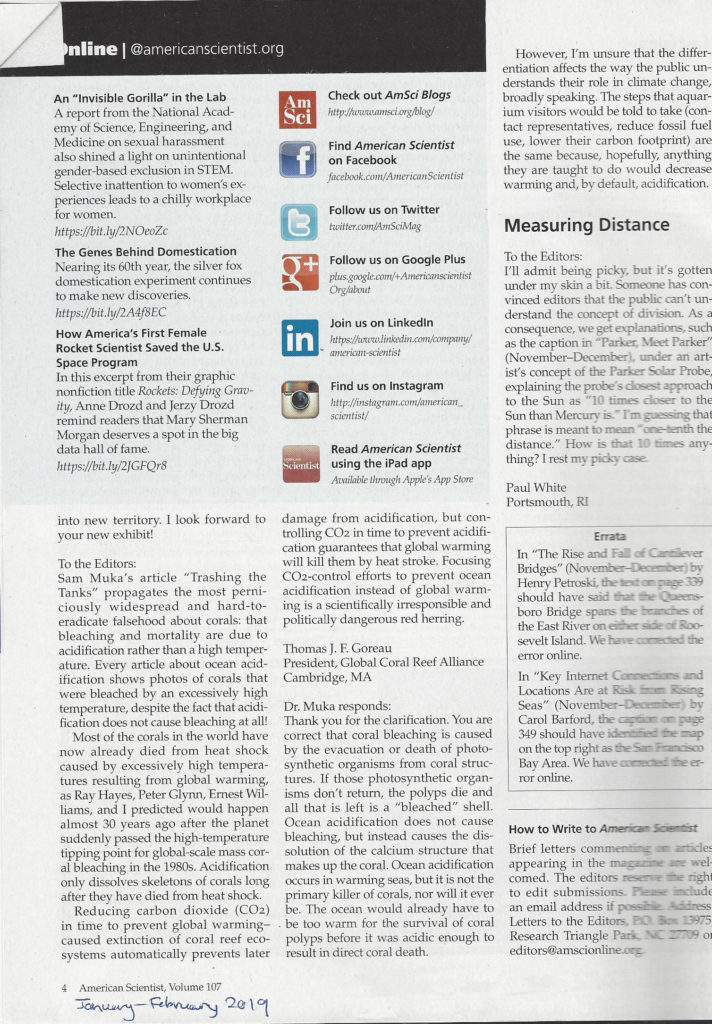T. J. F. Goreau & S. Muka, Letters, American Scientist, 2019, 107:4


Transcript:
To the Editors:
Sam Muka’s article “Trashing the Tanks” propagates the most perniciously widespread and hard-to-eradicate falsehood about corals: that bleaching and mortality are due to acidification rather than a high temperature. Every article about ocean acidification shows photos of corals that were bleached by an excessively high temperature, despite the fact that acidification does not cause bleaching at all!
Most of the corals in the world have now already died from heat shock caused by excessively high temperatures resulting from global warming, as Ray Hayes, Peter Glynn, Ernest Williams, and I predicted would happen almost 30 years ago after the planet suddenly passed the high-temperature tipping point for global-scale mass coral bleaching in the 1980s. Acidification only dissolves skeletons of corals long
after they have died from heat shock.
Reducing carbon dioxide (C02) in time to prevent global warming— caused extinction of coral reef ecosystems automatically prevents later damage from acidification, but controlling C02 in time to prevent acidification guarantees that global warming will kill them by heat stroke. Focusing C02-control efforts to prevent ocean acidification instead of global warming is a scientifically irresponsible and politically dangerous red herring.
Thomas J. F. Goreau
President, Global Coral Reef Alliance
Cambridge, MA
Dr. Muka responds:
Thank you for the clarification. You are correct that coral bleaching is caused by the evacuation or death of photosynthetic organisms from coral structures. If those photosynthetic organisms don’t return, the polyps die and all that is left is a “bleached” shell. Ocean acidification does not cause bleaching, but instead causes the dissolution of the calcium structure that makes up the coral. Ocean acidification occurs in warming seas, but it is not the primary killer of corals, nor will it ever be. The ocean would already have to be too warm for the survival of coral polyps before it was acidic enough to result in direct coral death.
However, I’m unsure that the differentiation affects the way the public understands their role in climate change, broadly speaking. The steps that aquarium visitors would be told to take (contact representatives, reduce fossil fuel use, lower their carbon footprint) are the same because, hopefully, anything they are taught to do would decrease warming and, by default, acidification.